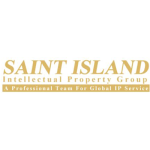The amendment to Taiwan’s Trademark Act that was passed by Congress in May 2023 is scheduled to take effect on May 1 2024. One notable aspect is the introduction of an accelerated examination programme for trademark applications, as stipulated in Article 19.8.
In accordance with this new article, where trademark applicants require timely registration of their trademarks, they may file with the Intellectual Property Office (the IP Office) requests for accelerated examination setting out the facts and reasons, along with payment of an official fee. The article, however, does not apply to a trademark application where the IP Office has issued an official letter requesting amendments or raising a refusal.
In January 2024, the IP Office issued a draft Operating Procedures for the Accelerated Examination Programme for Trademark Applications, which is expected to come into force prior to May 1 2024. The highlights are as follows.
The following two types of trademark applications are suitable for the accelerated examination programme.
All the designated goods/services in a trademark application have been in actual use or been substantially in preparation for use under the applied-for trademark, and:
The ‘actual use’ refers to use of the applied-for trademark in Taiwan; and
The ‘substantially in preparation for use’ refers to a state where the applied-for trademark is very close to being put to use on the market.
Part of the designated goods/services in a trademark application have been in actual use or been substantially in preparation for use under the applied-for trademark by the applicant (or its licensee), and there is a necessity or an urgency for the applicant (or its licensee) to claim its rights in the business. Any of the following conditions shall be construed as making it necessary or urgent for the applicant to claim its rights for commercial concern:
A third party has used the applied-for trademark or substantially prepared for use of the same without the consent of the applicant;
The applicant has received a warning letter from a third party asserting infringement associated with the use of the applied-for trademark;
A third party has requested to obtain a licence to use the applied-for trademark;
There has been a plan to launch goods/services under the applied-for trademark on the market and related sales or distribution contracts with collaborating firms;
There has been a plan to display the applied-for trademark in exhibitions and related contracts with the exhibition organisers; or
There is other evidence proving the necessity and urgency for the applicant to claim its rights for commercial concern.
The procedures for the accelerated examination programme are summarised below.
The applicant shall file a request for accelerated examination along with the trademark application or, at the latest, before the IP Office issues the first examination result.
Traditional and non-traditional trademark applications are eligible for the accelerated examination programme. The programme, however, is not applicable to applications concerning certification marks, collective marks, or collective trademarks.
The applicant must specify the facts and reasons in the request and submit evidential materials, including evidence of actual use of the applied-for trademark, meeting the following requirements:
The trademark appearing in the evidence must be exactly identical to the applied-for trademark shown on the trademark application form;
The evidence must bear a date and the name of the user; and
The evidence must show use of the trademark by the applicant on its own or by its licensee(s) and not by any unauthorised third party.
The official fee payable for requesting accelerated examination of a trademark application is TWD 6,000 per class.
The timeframe for an accelerated examination is as follows – a request for accelerated examination of a trademark application is accepted by the IP Office upon payment of the official fee. The IP Office shall issue the notice of allowance or the first examination result regarding the application within two months of acceptance of the request and issue the final examination result within 15 working days upon receiving the applicant’s response to the first examination result.
It is expected that the introduction of the accelerated examination programme will offer greater flexibility to trademark applicants and enhance the efficiency of obtaining timely trademark registrations.












